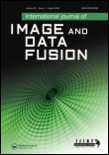
International Journal of Image and Data Fusion
metrics 2024
Transforming Insights Through Advanced Data Fusion Techniques
Introduction
The International Journal of Image and Data Fusion, published by TAYLOR & FRANCIS LTD, is a premier scholarly journal dedicated to the fields of computer science applications and earth and planetary sciences. With an ISSN of 1947-9832 and E-ISSN 1947-9824, this journal offers a unique platform for researchers, professionals, and students interested in the innovative integration of image processing and data fusion techniques. Operating from the United Kingdom, it plays a vital role in advancing knowledge and facilitating discussions in these rapidly developing domains, evidenced by its ranking within the Q3 category for Computer Science Applications and Q2 for Earth and Planetary Sciences in 2023. The journal features rigorous peer-reviewed content that spans from 2010 to 2024, encouraging the dissemination of novel research findings and methodologies. With a notable impact factor and strong Scopus rankings, it remains an essential resource for those seeking to enhance their understanding and application of sophisticated data fusion technologies in their academic or professional work.
Metrics 2024
 0.47
0.47 1.80
1.80 1.70
1.70 33
33Metrics History
Rank 2024
Scopus
IF (Web Of Science)
JCI (Web Of Science)
Quartile History
Similar Journals

Signal Image and Video Processing
Pioneering Research in Image and Video ProcessingSignal Image and Video Processing, published by Springer London Ltd, is a cutting-edge academic journal dedicated to the fields of electrical and electronic engineering and signal processing. With an ISSN of 1863-1703 and an E-ISSN of 1863-1711, this journal plays a pivotal role in disseminating innovative research findings from 2007 to 2024, boasting a commendable Q2 ranking in its respective categories. Located in the United Kingdom, the journal attracts a diverse readership of researchers, professionals, and students eager to explore advancements in signal processing technologies and their applications in imaging and video analysis. Although it does not offer open access, its rigorous peer-review process ensures the publication of high-quality, impactful research, evident by its respectable rankings within Scopus in both electrical engineering and computer science domains. The journal serves as vital resource for those aiming to stay at the forefront of technological developments and research in image and video processing.
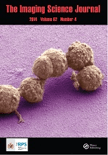
IMAGING SCIENCE JOURNAL
Fostering Scholarly Dialogue in Imaging ResearchImaging Science Journal, published by Taylor & Francis Ltd, serves as a vital resource for researchers and professionals in the fields of computer vision, pattern recognition, and media technology. With an ISSN of 1368-2199 and an E-ISSN of 1743-131X, this journal has been fostering scholarly dialogue since its inception in 1997, with a converged content offering extending through 2024. Its categorization in Quartile 4 in Computer Vision and Pattern Recognition and Quartile 3 in Media Technology highlights its relevance and contributions to emerging trends in these domains. Although it ranks 36th in the Engineering - Media Technology category and 96th in Computer Science - Computer Vision and Pattern Recognition, its innovative research and insights continue to attract the attention of scholars dedicated to advancing knowledge at the intersection of imaging technologies. Offering versatile access options, this journal is essential for students, researchers, and professionals aiming to stay informed and engaged in the rapidly evolving landscape of imaging science.

Boletim de Ciencias Geodesicas
Pioneering Discoveries in the Dynamic World of GeodesyBoletim de Ciências Geodésicas is an esteemed academic journal published by the Universidade Federal do Paraná within its Centro Politécnico. Focused on the dynamic field of Earth and Planetary Sciences, this Open Access journal has been a pivotal resource since 1997, fostering the dissemination of critical research and innovative methodologies. With an impact factor indicative of its relevance in the discipline, Boletim de Ciências Geodésicas ranks in the Q3 quartile for Earth and Planetary Sciences as of 2023, showcasing its commitment to quality scholarship in a competitive field. Researchers and students alike will benefit from access to cutting-edge findings, given its broad scope that encompasses various aspects of geodesy and related sciences. The journal's convergence of research from 2005 to 2024 ensures that it remains at the forefront of emerging trends and fundamental developments in the discipline, further enhancing its esteemed reputation in the academic community.

Geomatik
Unleashing the potential of geospatial technologies.Geomatik is a pioneering open-access journal dedicated to advancing the field of geomatics, encompassing disciplines such as geospatial data analysis, remote sensing, and geographic information systems. Founded in 2016 by the esteemed Geomatik Journal publisher, this peer-reviewed platform aims to disseminate high-quality research and innovative methodologies to a global audience. With its E-ISSN 2564-6761, Geomatik facilitates accessibility to cutting-edge studies that address vital challenges in environment monitoring, urban planning, and spatial data management. The journal not only encourages collaboration among researchers and practitioners but also serves as an essential resource for students seeking to deepen their understanding of geomatic sciences. Its commitment to open access fosters scholarly exchange and enhances visibility for authors, contributing to significant advancements within the geomatics community.

Traitement du Signal
Exploring New Horizons in Signal TechnologiesTraitement du Signal, published by the INT Information & Engineering Technology Association, is a distinguished journal that serves the vibrant field of Electrical and Electronic Engineering. With an ISSN of 0765-0019 and an E-ISSN of 1958-5608, this journal has made significant contributions to the discipline since its inception. While it currently operates under a non-open access model, it maintains its commitment to disseminating valuable research from 2010 to 2023, despite its recent discontinuation in Scopus coverage. Recognized in the third quartile (Q3) of the category in 2022, the journal provides a platform for researchers, professionals, and students to publish their findings on topics such as signal processing, communications, and related technologies. By curating high-quality articles, Traitement du Signal plays a crucial role in advancing knowledge and fostering innovation within the electrical and electronic engineering community.

Remote Sensing Letters
Unveiling New Perspectives in Remote Sensing ApplicationsRemote Sensing Letters, published by Taylor & Francis Ltd, is a distinguished journal that serves a vital role in the fields of Earth and Planetary Sciences as well as Electrical and Electronic Engineering. With an ISSN of 2150-704X and an E-ISSN of 2150-7058, this journal has been disseminating cutting-edge research since its inception in 2010, converging toward a future of innovation and technological advancement scheduled through 2024. The journal is recognized for its impactful scholarship, achieving a Q2 quartile ranking in both its categories as of 2023, highlighting its significance in enhancing academic discourse and applications in remote sensing methodologies. Although it does not operate under an open-access model, it provides access to essential findings that address contemporary challenges in the remote sensing domain. Located in the United Kingdom at 2-4 Park Square, Milton Park, Abingdon, OX14 4RN, Remote Sensing Letters is a crucial resource for researchers, professionals, and students committed to advancing their understanding and application of remote sensing technologies.
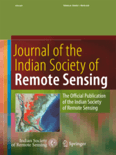
Journal of the Indian Society of Remote Sensing
Advancing Remote Sensing Knowledge for a Sustainable FutureJournal of the Indian Society of Remote Sensing, published by SPRINGER, stands as a prominent contribution to the fields of Earth and Planetary Sciences and Geography, Planning and Development. With an ISSN of 0255-660X and an E-ISSN of 0974-3006, this esteemed journal has been in circulation since 1973, showcasing a rich repository of research and advancements in remote sensing applications, methodologies, and technologies, specifically within the Indian context and beyond. The journal's impact is underscored by its placement in the Q2 category of both Earth and Planetary Sciences and Geography as of 2023, ranking impressively in the Scopus database with significant percentiles. With the intent to bridge the gap between theory and practical application, it invites scholars, researchers, and professionals to contribute innovative studies that enhance our understanding of remote sensing and its implications in various domains. The Journal of the Indian Society of Remote Sensing is a vital resource for anyone looking to remain at the forefront of research in this dynamic field.
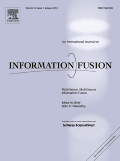
Information Fusion
Bridging Theory and Practice for a Smarter Tomorrow.Information Fusion is a premier journal published by Elsevier, specializing in cutting-edge research within the fields of hardware and architecture, information systems, signal processing, and software. With a significant impact factor, it remains at the forefront of academic discourse, boasting a remarkable Q1 ranking in each of its categories in 2023, which underscores its critical role in advancing knowledge and innovation in these domains. The journal, with ISSN: 1566-2535 and E-ISSN: 1872-6305, is dedicated to fostering collaboration and the dissemination of research findings that drive technological advancements and improve system efficiencies. Researchers, professionals, and students alike will find a wealth of valuable insights into emerging methodologies, trends, and applications. Designed to bridge the gap between theory and practice, Information Fusion invites contributions that enrich the academic landscape and provoke engaged discussions among the scholarly community.

Drones, published by MDPI in Switzerland, is a leading open-access journal dedicated to advancing research in the dynamic field of drone technology and applications. Since its inception in 2017, this journal has quickly established itself as a vital source of scholarly content, boasting a Q1 ranking in Aerospace Engineering and strong placements in Artificial Intelligence, Computer Science Applications, Control and Systems Engineering, and Information Systems. The journal aims to foster discourse and innovation around drone usage across various sectors, including environmental monitoring, logistics, and advanced manufacturing. With an impressive Scopus ranking, including a top 30 position in Aerospace Engineering, Drones continues to draw contributions from a diverse array of researchers, professionals, and students, thereby enriching the academic dialogue surrounding this transformative technology. As an open-access journal, it ensures that research is widely accessible, promoting transparency and collaboration within the international research community.
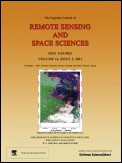
Egyptian Journal of Remote Sensing and Space Sciences
Empowering Researchers with Open Access to Groundbreaking DiscoveriesThe Egyptian Journal of Remote Sensing and Space Sciences, published by Elsevier, is a premier open-access journal dedicated to advancing the fields of Remote Sensing and Space Sciences. Since its inception, the journal has gained a prominent reputation, currently holding a prestigious Q1 ranking in Earth and Planetary Sciences and placing within the top 10% of its field according to Scopus metrics. With an ISSN of 1110-9823 and an E-ISSN of 2090-2476, the journal features a diverse range of scholarly articles that explore both theoretical and practical aspects of remote sensing technologies and space science innovations, thus appealing to researchers, professionals, and students alike. Established in 2003 and fully transitioning to an open-access model in 2010, the journal aims to disseminate knowledge and foster collaboration across the globe by providing wider accessibility to groundbreaking research findings. Its commitment to quality and innovation is a catalyst for intellectual development in these dynamic and evolving disciplines.